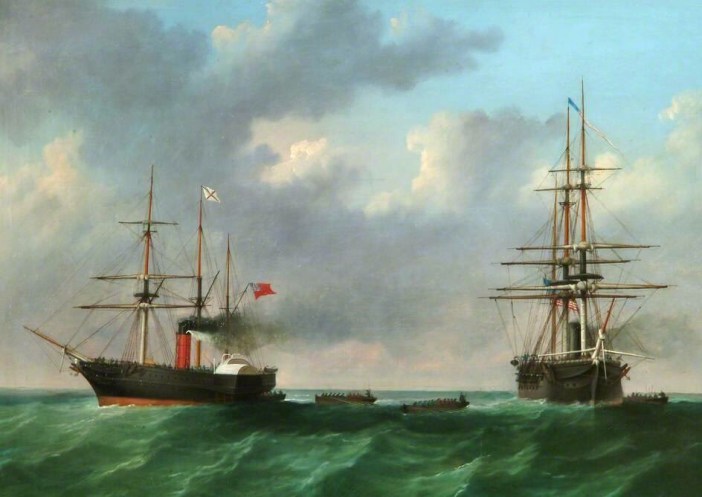

Today in History, December 26: 1861 – The “Trent Affair” ends with the release of Confederate envoys James Mason and John Slidell into British custody. Seems mundane initially, but this is a fascinating story that helps define American character. Earlier in the year, Union forces had been made aware that Confederate emissaries were being sent to Britain…believing that the desire for Southern cotton (King Cotton) by British merchants would inspire the UK Government to recognize the Confederacy as as separate nation, and to support her against the North. The USS San Jacinto, commanded by US Navy Captain Charles Wilkes, found the HMS Trent, a mail “packet” ship carrying Mason and Slidell to Britain to lobby for recognition and for support. He ordered the ship boarded and the envoys arrested as “contraband”, taking them to a Union port. Wilkes had led the American Exploring Expedition years earlier…science was his domain, not international relations. He created an international incident….the British were outraged that one of their ships had been boarded and her passengers seized. Ironically, by international law, had he seized the entire ship and brought her to port pending a trial, nobody would have been offended. US Secretary of State William Seward had to deal with the situation. American public sentiment was that the Southerners were taken legitimately. But if you looked at American history to that date…the Revolution had been won partially because Americans had gained foreign recognition by France. So was the Confederacy really doing anything that the Americans of the Revolution hadn’t done? Subsequently, the War of 1812 had been fought largely because Americans were tired of the British boarding their ships and seizing the ships crewmen. So could Capt. Wilkes’ actions be defended? Foremost in Seward’s thinking (and Lincoln’s) was that the Union would be hard pressed to win the Civil War if Britain came in on the side of the Confederacy, deciding that the CSA was a nation unto itself rather than a rebellious segment of one nation. In the end Seward voiced an eloquent conciliatory message to the British, released the Southern envoys to the British government, and avoided creating another enemy the North could not fight. Mason and Slidell continued on to Britain, but their efforts came to naught.
Wow, fantastic weblog format! How lengthy have you been blogging for? you made blogging glance easy. The entire glance of your site is wonderful, let alone the content!
LikeLiked by 1 person